Review of Laurence Olivier: Shakespeare Collection
Introduction
William Shakespeare (1564-1616), also known as `The Bard`, is widely regarded as the greatest English writer. In his 52 years, it is estimated that he penned 38 plays, 154 sonnets and a number of poems. In addition, Shakespeare is the most quoted English-speaking writer and arguably the most important figure in the history of literature. Although his work was popular during his lifetime, Shakespeare has arguably become more acclaimed and has gained prominence culturally and academically since his death.
Considered the finest English speaking actor of the twentieth century and the greatest performer of Shakespeare`s works in modern times, Sir Laurence Olivier, or `Larry` as he liked to be called, could apparently speak Shakespeare`s lines as if he were "actually thinking them" and performed the Bard`s work for four decades on stage and screen. Tony Richardson said "At heart Larry was what the French call a cabotin. The term is difficult to translate - not exactly a ham; a performer, a vulgarian, someone who lives and dies for acting." This devotion to the performing arts was recognised by the Academy for Motion Pictures, Arts and Sciences, who awarded him an honorary Oscar in 1979 for "the full body of his work, for the unique achievements of his entire career and his lifetime of contribution to the art of film.".
As You Like It (1936)
The only comedy amongst the set revolves around the complicated love between Rosalind (Elisabeth Bergner) and Orlando (Laurence Olivier). When Rosalind`s father is usurped and banished from the city by his brother, she disguises herself as a man and meets Orlando who is smitten by Rosalind, but not recognising her, befriends the `young man` who has his own admirer, a shepherd called Silvius.
Elisabeth Bergner receives top billing as Rosalind, her name appearing even before the title of the film, but she was married to director Paul Czinner so obviously received preferential treatment. She had played the role in Germany, before fleeing the Nazis in 1933. Her accent is prominent and sits ill at ease with the rest of the cast, with their received English. Although Olivier was a formidable stage actor - he was acting in Romeo & Juliet when not filming - this was his first appearance in a screen adaptation of a Shakespeare play and it is clear that he is finding his feet.
Although a large part of the play is omitted in this adaptation, at no point does it feel that anything is missing, and the actors deliver the superb dialogue well, creating a real sense of fun. Enjoyable, but no masterpiece.
Henry V (1944)
Released to coincide with the Allied invasion of Normandy, Shakespeare`s play tells the story of Henry V, a skilled military leader who united the disparate factions of the English army into a fearsome fighting force that famously defeated the French at Agincourt.
Released under the title `The Chronicle History of King Henry the Fift with His Battell Fought at Agincourt in France`, but more widely known simply as `Henry V`, Olivier made his directorial debut, using a brilliant framing device of a performance of the play in the Globe Theatre which comes to life before returning to the stage for the finale.
Some will prefer Kenneth Branagh`s more visceral and accessible adaptation, but I found Olivier to play the role with far more depth and deliver the classic "Once more unto the breach..." speech with such power and skill that the limited budget is not a major factor, due to the quality of the acting and direction.
Hamlet (1948)
In medieval Denmark, Elsinore Castle is visited by the ghost of the late King, Hamlet`s father, who died in mysterious circumstances. When Hamlet is told of the ghost, he stands watch and when it appears, follows it, much to the disquiet of the other guards, one of whom, Marcellus, utters the famous line "Something is rotten in the state of Denmark.". The apparition tells Hamlet that, with the connivance of Queen Gertrude, he was murdered by his brother Claudius, who has since married her and taken the throne and must take revenge in order that his father may rest. Hamlet puts on a play in which the plot is recreated for the whole court to see, exposing Claudius and throwing the household into turmoil.
The greatest and longest of Shakespeare`s plays - the stage versions take about four and a half hours to perform - and, of the seven screen adaptations, only Kenneth Branagh has helmed an unabridged version. Omitting the characters Rosencrantz and Guildenstern, Olivier reduced the running time by two hours, much to the dismay of Shakespeare purists, but making it a more accessible and audience-friendly film.
When Olivier set out to direct the film, he intended to film in colour, but got into a row with Technicolor, so was forced to film in black and white. Never in his wildest dreams could he have imagined that not getting his way would turn out so well! Obviously with a taste for directing, after helming `Henry V`, Olivier shows that his talent behind the camera was not a one-off and, using similar cinematic techniques to those in `Citizen Kane`, he creates a gothic masterpiece which deservedly earned him two Oscars for Best Director and Best Actor. Olivier cements his position as one of the finest actors ever seen with a bravura performance as Hamlet, Jean Simmons is excellent as Ophelia, who is driven mad by Hamlet and a young Vincent Price is very assured as the courtier Osric.
Richard III (1955)
Best known for killing his nephews in the tower, Richard III is one of history`s great villains, an unscrupulous aristocrat who murdered his way to the throne. With prosthetic nose, hunched back and limp, Laurence Olivier is brilliant as the deformed duke. Beginning as his brother Edward IV is crowned, Olivier delivers the famous "Now is the winter of our discontent" soliloquy and then goes on to give a lesson in Machiavellian politics, before his death at the Battle of Bosworth.
Joined on screen by the other great thespians and peers Ralph Richardson and John Gielgud, `Richard III` isn`t short of acting talent and no-one disappoints, each with masterful performances. This was the last film of Shakespeare`s work that Olivier would direct, and while it is not on the level of `Henry V` or `Hamlet`, this is a very fine piece of work.
The Merchant Of Venice (1973)
Adapted and directed by John Sichel, this made for TV film stars Olivier as Shylock, Jeremy Brett as Bassanio and Olivier`s then wife, Joan Plowright as Portia. The plot concerns Antonio, who is used as collateral by Bassanio who borrows money from Shylock, a Jewish moneylender. When the time comes to pay up, Antonio is bankrupt, so Shylock claims a pound of his flesh as specified in the bond.
`The Merchant Of Venice` is one of Shakespeare`s more approachable and memorable plays, with Shylock and the `pound of flesh` entering common parlance. Although not a great film, the dialogue is delivered with such precision that it loses little of its power and, despite some strange casting decisions (such as the Prince of Aragon looking far too old to be seriously considered a suitor) and low production values, this is nevertheless a fine adaptation.
King Lear (1983)
The titular monarch, played by Laurence Olivier, has grown tired and decides to abdicate and give his kingdom away to his three daughters, with their share dependent on how well they describe their love for him. The elder sisters, Goneril and Regan (Dorothy Tutin and Diana Rigg) play to the king`s ego and are fawning in their descriptions and are well rewarded. His youngest (and favourite) daughter, Cordelia (Anna Calder-Marshall) is having none of the charade and answers her father honestly, but her truthfulness only enrages King Lear, who banishes her. With Cordelia`s land shared between them, Goneril and Regan begin plotting against one another to seize the throne and the entire kingdom, but other members of the royal household, including Edmund, the illegitimate son of the Earl of Gloucester, also have plans.
At 75, Olivier was close to Lear`s age, yet had lost none of the energy or skill, which won him Oscars in his younger days. He is ably supported by a fine cast including Dorothy Tutin, Diana Rigg, John Hurt, Colin Blakely and Robert Lindsay. This is a made for TV production, resembling a stage play rather than a film, but far from working against it, the attention is firmly on the actors, who rise to the occasion superbly. I was particularly impressed with Robert Lindsay, who I had only previously seen in `Citizen Smith`, and didn`t realise he was a seasoned Shakespearean actor.
This is a powerful adaptation of one of Shakespeare`s great tragedies and it`s just a shame that visually it has not aged well.
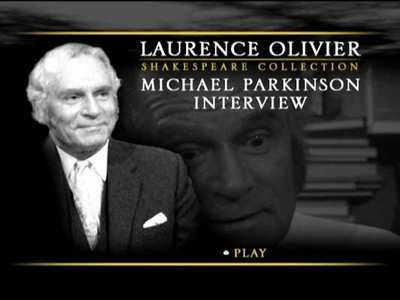
Video
As You Like It
When the DVD loads up, a screen appears saying:
"While every effort has been made to obtain the best quality source material for this title, imperfections commensurate with the age and condition of the footage featured herein will be unavoidably evident."
This is a disclaimer/apology for the terrible quality of the fullscreen transfer, with plenty of scratches, dirt, grain and other artefacts.
Henry V
There is some softness and lack of clarity to the 1.33:1 fullscreen transfer, but otherwise the picture quality is very good, with rich colours.
Hamlet
Aside from some scratches and detritus from the source material, the 1.33:1 transfer is very good and does a superb job of emphasising the terrific monochrome photography. However, the contrast isn`t as dark, nor as consistent as it could or should be.
Richard III
By far the best looking film in the set, with terrific costumes and scenery, which are bright and vibrant and well presented by the anamorphic 1.78:1 transfer.
The Merchant Of Venice
With TV production values, the sets and costumes are not great, neither is the 1.33:1 transfer, with softness, moiré and illumination flare.
King Lear
This has a very poor 1.33:1 transfer, with shockingly bad contrast, softness, grain, moiré and illumination flaring. It doesn`t detract from the power of the performances, but is a real shame in such a box set.
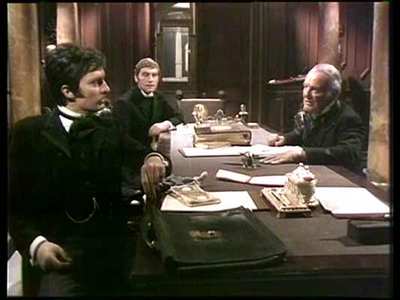
Audio
All of the films have 2.0 Mono English soundtracks, which vary in quality from the poor, with pops, crackles and hissing in `As You Like It`, to the perfectly clear `Richard III`. Generally though, they are up to the job of delivering the dialogue very well.
Excellent English HoH subtitles are available on all films, apart from `As You Like It`.
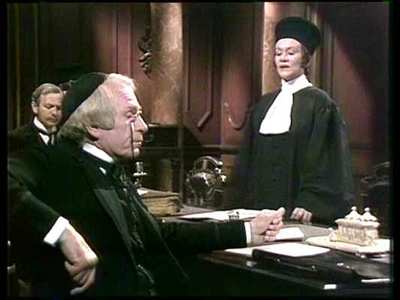
Features
Michael Parkinson Interviews Sir Laurence Olivier - running at 32 minutes, the camera stays on Olivier as he answers Parkinson`s questions about his career and the differences between acting in front of an audience and a camera. Clearly intended to be interspersed with film clips and screened as a piece on Olivier, this featurette is purely the great actor talking to an off-screen Parkinson, but is still an interesting and revealing interview.
It`s a real shame that this is the only supplementary material and no commentaries, interviews or retrospectives appear on the bare bones discs.
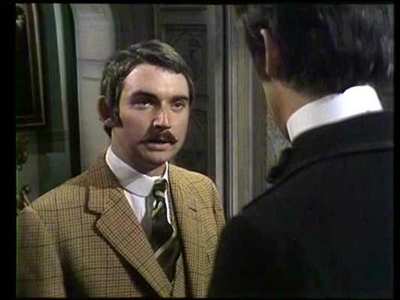
Conclusion
Combining the talents of England`s finest writer with arguably the finest actor of his day, this box set contains six of Olivier`s appearances in films based on Shakespeare`s plays. The selling point is undoubtedly the inclusion of the acclaimed `Hamlet` and `Henry V` films, yet it is good to see other adaptations given a DVD release. Considering the box set is dominated by dramas and tragedies, the inclusion of `As You Like It` is a strange one, and `Othello` should have been included.
Nevertheless, this is a fine testament to a great actor and his mastery of Shakespeare`s works and, despite the paucity of the extra material, is highly recommended.
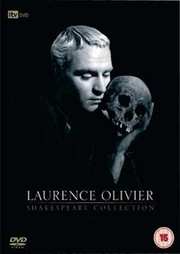




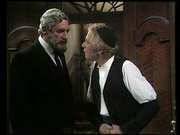
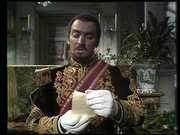
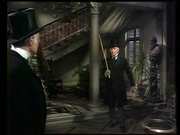
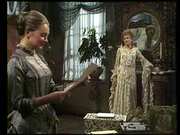
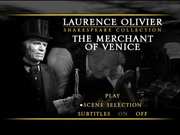

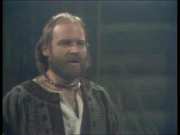
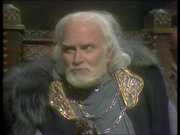
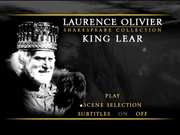
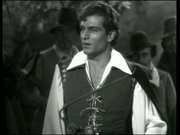
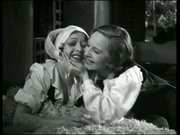
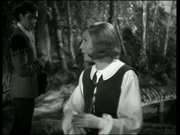
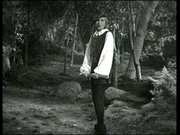
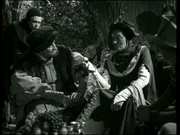
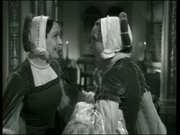
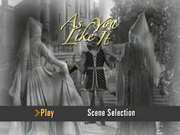
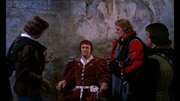
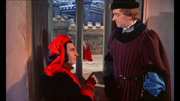
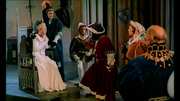
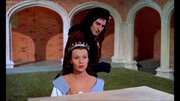
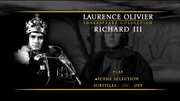
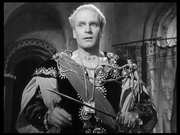
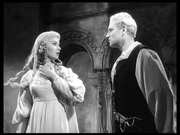
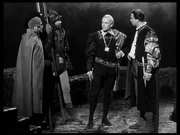
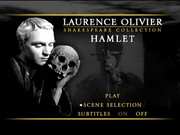
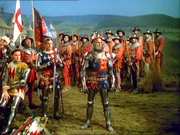
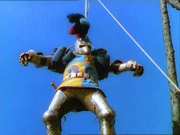
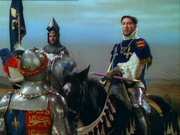
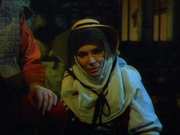
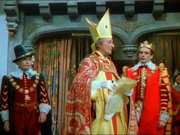
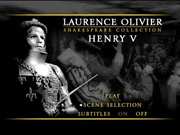
































Your Opinions and Comments
Be the first to post a comment!